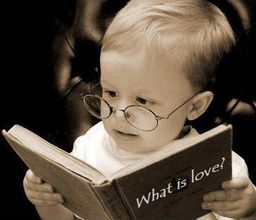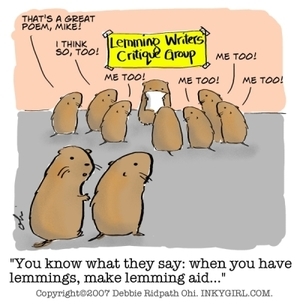Stan C. Smith's Blog, page 37
November 30, 2015
#5: Self-Publishing vs. Traditional Publishing
 My fifth post about writing and publishing as an indie author. The last post was ‘Create a polished manuscript’ (bottom line: finish it, edit it, have friends edit it, have a professional edit it).
My fifth post about writing and publishing as an indie author. The last post was ‘Create a polished manuscript’ (bottom line: finish it, edit it, have friends edit it, have a professional edit it).Topic #5: Self-publishing vs. traditional publishing.
You’ve finished writing and editing your book. Now you’re ready to do something with it. The question is, publish it the traditional way or self-publish it?
You can read endless debates on this question online. I will take a streamlined approach and explain what is best for me. First, quick summaries of the two choices (for fiction novels):
TRADITIONAL PUBLISHING: For novels, typically you find an agent to represent your work to sell it to a publisher. Send a cover letter, the first few pages, and perhaps a synopsis of your novel to several agents at a time. If an agent thinks it might be of commercial value, she will request the entire completed novel. It can take months or years to procure an agent willing to represent it. Your agent will then try to sell your novel to publishers. This can take months or years, or may never happen at all. Once your novel is sold to a publisher, there is an extensive period of negotiating, editing, and printing. Expect 18 months between signing the contract and seeing the book in print.
SELF-PUBLISHING: First, choose a publishing service (Amazon is the largest, but there are others such as Lulu, Bookbaby, Barnes and Noble). Create a free account. Format your book for an ebook and for a print book (if you want a print version). Upload the two formatted files. Upload your cover design (cover designs are a topic for another post). Set the prices for the ebook and print book. Your book then becomes available for sale on the service’s web site. There is no cost involved, other than a percentage of sales.
Yes, both descriptions are oversimplified for the sake of brevity.
Two reasons self-publishing is best for me: First, it is much faster (traditional = 2 to 6 years, self-publishing = a few days to a few weeks). Second, self-publishing allows far more creative control (including editing and cover design).
I want people to read my stories now. I am 55 years old and simply not willing to wait years. I also love being in control of the design of the covers of my novels, not to mention the plot, tone, pacing, and voice. I can set the price. I can have promotions and giveaways. I can switch to a new cover design. I can make improvements to the text and upload them to replace previous versions.
When I finish the sequel to Diffusion and Infusion, it will take about a week to make it available to readers (by the way, the title of the third book will be PROFUSION!).
Think you cannot become successful by self-publishing? Hugh Howey, Joe Konrath, and a growing number of best-selling self-published authors might disagree.
Bottom line: For me, self-publishing is best, hands-down. It’s faster, and you have more control.
Published on November 30, 2015 17:21
November 16, 2015
#4: Create a polished manuscript
 My fourth post about writing and publishing as an indie author. The last post was ‘Plot and write a novel’ (bottom line: There are as many approaches to this as there are writers. Just do it.).
My fourth post about writing and publishing as an indie author. The last post was ‘Plot and write a novel’ (bottom line: There are as many approaches to this as there are writers. Just do it.).Topic #3: Create a polished manuscript.
So, you write and write (and write) until you have the first draft of a novel. Here’s a secret: all first drafts are terrible. There, I said it. But I’m not the only one. Here's a quote from Ernest Hemingway: “The first draft of anything is shit.” That leads us to a quote from E.B. White: “The best writing is rewriting.” My translation of what these writers were trying to say: Get your first draft done. Don’t worry too much about the quality. Rewrite it again and again until it is good. And then keep rewriting until it is even better.
What works best for you when you edit your writing?
Here is my three-step process to create a polished manuscript:
Step 1: Self-editing. Go through it numerous times, because you’ll find more improvements to make every time. Read it out loud (to your spouse, your friend, or your dog). You’ll be surprised at how helpful this is in assessing the pacing and flow.
Step 2: Ask your friends to edit it. Maybe they aren’t professional editors, but they’ll have some suggestions, and they may have a good grasp of grammar and punctuation. They can even give you tips on effectiveness of the plot. And they’re inexpensive. They might do it for a pizza.
Step 3: Have at least one professional-level editor go through it. As an indie author, there is a risk of avoiding this due to the cost. But if you want to try to sell your novel, this is one of the two things you absolutely must invest in (the second is a professional cover design). You can expect to pay from $4 to $12 per 1000 words of your novel. A typical price would be $5, so this would be $400 for a novel of 80,000 words. You can easily hire editors on web sites such as: https://www.fiverr.com/ To be sure an editor can do professional-level work, look at their reviews and ratings (I can recommend several). Tip: do not do this step until you have edited to the best of your ability. You want your professional editor to do what you cannot, rather than paying them to do what you can do yourself.
Bottom line: finish your first draft, edit it yourself (over and over), have friends edit it, and finally, have a professional editor work on it.
Happy writing!
Published on November 16, 2015 16:05
November 10, 2015
Stories about love
 I want to share a series of stories I have written (and am still writing) that explore the nature of love. These stories will eventually end up in a compilation for sale on Amazon, but for now you can read them for free. I’m sharing the love (ha-ha). If you like them, you should check out my novels.
I want to share a series of stories I have written (and am still writing) that explore the nature of love. These stories will eventually end up in a compilation for sale on Amazon, but for now you can read them for free. I’m sharing the love (ha-ha). If you like them, you should check out my novels.What is love, anyway? What makes one person more compatible with you than with other people? What is it that makes your heart quicken when you smell her hair, or look into his eyes, or share a private moment that no one else would understand? Perhaps it is merely biological, nothing more than a suitable biochemical match. Perhaps it simply requires time spent together, with a willingness to gradually conform to the perceived needs of your partner. Or maybe some people just want to fall in love, and who they choose doesn’t even matter all that much.
What do you think love is? Since love is a significant facet of my existence, I have ideas about this. And as a writer, my ideas tend to come out as stories. Warning: I write speculative stories. I can’t help it. It’s the way my mind works (perhaps it is a little broken). In my stories, love may not be what you think or what you want it to be…
THE MATCHMAKER’S DAUGHTER is the first of these stories. It occurred to me that we are experiencing an unprecedented online availability of data on every person. In the next few years, it will explode to unimaginable amounts of information. What manner of uses will we come up with for all that data? Juliet has just graduated from high school, and she is in love with the idea of falling in love. When she sneaks into her mom’s office and accesses a prototype of a groundbreaking database, her life swiftly takes a turn she could never have imagined.
This story is a quick read (less than a hour), and I would love to hear your thoughts on it. You can access a free PDF copy of The Matchmaker’s Daughter at the top of my home page. Or just tap or click here.
Published on November 10, 2015 17:15
November 3, 2015
#3: Plot and write your novel
 This is my third post about writing and publishing as an indie author. The last post was ‘Boost your writing skills’ (bottom line: Write every day, whether you feel like it or not, and have others critique your writing).
This is my third post about writing and publishing as an indie author. The last post was ‘Boost your writing skills’ (bottom line: Write every day, whether you feel like it or not, and have others critique your writing).Topic #3: Plot and write a novel.
There is false mystery assigned to the process of writing novels. Hollywood portrays it as something magical that happens only to writers who have some unquantifiable talent they were born with and reluctantly must act upon. Bollocks. If you want to write a novel, sit down and write it, and learn as you go from anyone willing to help. As Thomas Edison said, “Success is 10% inspiration and 90% perspiration.”
There is no one formula for plotting a novel. Some writers create notecards for each scene and shuffle them to see what sequence works best. Some writers don’t plot their novels at all, preferring to let the story unfold as they write. Or you could use a software application designed to help writers develop and organize characters and scenes (https://goo.gl/2G28nz).
Then there’s my approach. Grab a hot mocha, put my feet up, and start scribbling ideas onto a yellow legal pad. Eventually an intriguing concept begins to form. Take that concept and jot down possible story arcs until I have one that could be a novel or short story that excites me. Write a rough outline of what happens during the story and how it could end. It might be a bulleted list less than one page long. Then I flip to the next page and start writing the first scene. The final story won’t resemble the outline much, because the best ideas come when you are deep into the writing, not while outlining.
Here’s an example. Recently I decided to write a short story. I made a list of concepts that interested me. One of them stood out: What if there was a computer that could find your perfect romantic match out of all the people in the world? (Confession: this idea came to me because several years ago I had read Death Match, by Lincoln Child). I scribbled out several scenarios for a story based on this concept. I decided it would be interesting if a teenage girl is one of the first to try the software out, and she steals her mom’s car and drives hundreds of miles to see the person who is supposedly her perfect match. As I was writing the story, I decided to make it tragic (like Romeo and Juliet). I named the protagonist Juliet and came up with a new ending. I finished the story and then edited it a dozen times. If I want to actually publish it, I’ll ask at least one person with professional-level editing skills to go through it (my son, Micheal Smith, often helps me).
The final story is THE MATCHMAKER’S DAUGHTER. Would you like to read it? Here is a free copy. Let me know what you think of it. And share this post so others can read it!
That’s it, there’s no mystery to the process. Bottom line: Just do it.
Published on November 03, 2015 08:04
October 26, 2015
#2: Boost your writing skills
 Ever had the urge to write a book? This is my second post about the processes involved with writing and publishing as an indie author. The first post was ‘Decide what kind of writer you are’ (bottom line: Write for yourself, not for other people, so that your passion shows through).
Ever had the urge to write a book? This is my second post about the processes involved with writing and publishing as an indie author. The first post was ‘Decide what kind of writer you are’ (bottom line: Write for yourself, not for other people, so that your passion shows through).Topic #2: Boost your writing skills.
I’m not a great writer. But I’m getting better. My next novel will be better than the last one, and the one after that will be even better. How do I know this? Because the more time I spend doing something, the better I get at it, whether it’s writing, swimming, or hunting the elusive wild turkey (that’s a topic for another day). Writers often say the best advice is B.I.C. This stands for Butt In Chair. In other words, if you want to be a writer, sit down and write. Write every day, at a scheduled time if possible. William Faulkner said: “I write only when I’m inspired. Fortunately I’m inspired at 9 o’clock every morning.” What he meant was that he forced himself to write every day, not just when he felt like it.
Those of you who are teachers might say this is misleading. Without a foundation of knowledge, B.I.C. could result in the same bad habits becoming entrenched. You’re right. So I recommend supplementing B.I.C. time with learning activities. Everyone learns differently, but here’s what I have done. First, I have a shelf full of how-to writing books. They were all helpful. You can also take creative writing classes. I took several online classes with Gotham Writers Workshop (http://www.writingclasses.com). But these classes led to what has worked best for me, which is interacting with other writers—having them read and critique my work. What made the classes successful was that the students exchanged critiques every week, one novel chapter at a time. Some of the students from my last class formed a writing group that worked together for years. You can easily form a writers group online or in person. The concept is simple: every week the group reads and provides feedback on the work of two group members. If you have six in your group, then each person must submit a new chapter (or short story) every three weeks to be critiqued. This provides structure and motivation to keep writing. I would trade all my writing books for one year of interaction with a small group of like-minded writers. And you learn just as much from providing feedback as you do from receiving feedback.
Bottom line: Write every day, whether you feel inspired or not. Have others critique your writing. And remember, write what you love to read.
Published on October 26, 2015 07:36
October 21, 2015
#1: What kind of writer are you?
 People have asked me about the processes involved with writing and publishing as an indie author. I thought some of you might find it interesting. So this is the first in a series of posts, each describing a different aspect of the process.
People have asked me about the processes involved with writing and publishing as an indie author. I thought some of you might find it interesting. So this is the first in a series of posts, each describing a different aspect of the process.Topic #1: Decide what kind of writer you are.
Let’s be honest, you don’t become an indie author to get rich (although this happens more frequently these days—look up Hugh Howey or Scott Sigler, among others). You do it because you like to write. It is a creative outlet, and we all need creative outlets, don’t we? I write because it makes me happy to create something from nothing. But my books are not for everyone. I grew up reading sci-fi and adventure books. I collected and read everything Edgar Rice Burroughs wrote (Tarzan, John Carter of Mars, At the Earth’s Core, etc.). And so writing Diffusion and Infusion was a labor of love for me. The question is: what do you love to read? If you love poetry, you should write poetry. You could take a poetry class, or read some books on writing poetry, or simply study the work of great poets. Do you love to read steamy romances? If so, you should write romances. Life is too short to spend precious free time doing things we don’t love. Other people may not like the books you like. But don’t write for other people. Write for yourself. If you do, your passion will show through. It is much easier to become good at something when you are passionate about it.
And keep in mind the world is changing. With indie publishing distributors such as Amazon, you now have access to readers all over the world. Maybe your friends and neighbors don’t like the books you like, but you can bet your best writing pen that somewhere in the world there are people who do. Even if you write zombie romances set in prehistoric times.
What kind of writer is inside of you waiting to come out?
Published on October 21, 2015 05:46
October 16, 2015
What is your creative outlet?
 As a teacher, I loved creating new lessons I thought would engage students. As an Instructional Technology Coordinator, I loved creating workshops for teachers and writing grants to fund exciting programs involving technology in the classroom. I even enjoyed writing tutorials explaining how to do certain tasks with software apps. These were my creative outlets for the 29 years I was an educator. Now that I am writing fiction full time, that is my creative outlet (I love sharing the fruits of my efforts, my novels: http://goo.gl/rojJEA).
As a teacher, I loved creating new lessons I thought would engage students. As an Instructional Technology Coordinator, I loved creating workshops for teachers and writing grants to fund exciting programs involving technology in the classroom. I even enjoyed writing tutorials explaining how to do certain tasks with software apps. These were my creative outlets for the 29 years I was an educator. Now that I am writing fiction full time, that is my creative outlet (I love sharing the fruits of my efforts, my novels: http://goo.gl/rojJEA).I have a neighbor who never stops working on the landscaping of his patio and yard. I think that’s his creative outlet, and I am somewhat envious of his skills. I have a son who is a wizard with words and rhetoric, another son who paints decoys and can cook any wild game or fish, a daughter who is mastering jiu jitsu, one who can expertly cut and style any head of hair, and one who creates the most imaginative wedding cakes. My wife Trish can take any set of ingredients and create a delicious meal (which can never be repeated in the exact way again, as it is an art rather than a science). You might like to paint with watercolors. You might like to create fun scrapbooks to pass down to your children. Or perhaps you garden and enjoy coming up with new configurations of soil, compost, and plants. Or maybe you like to redecorate the rooms of your house, creating fresh new living spaces.
It occurs to me that expressing ourselves creatively is part of being human. I imagine everyone has a creative outlet of some kind. If you haven’t thought about this, what is your creative outlet? Whatever it is, be sure to nurture it, study it, expand it, make time for it, and most of all, love it. It is, after all, part of what makes us human, don’t you think?
What is your creative outlet?
Published on October 16, 2015 14:20



